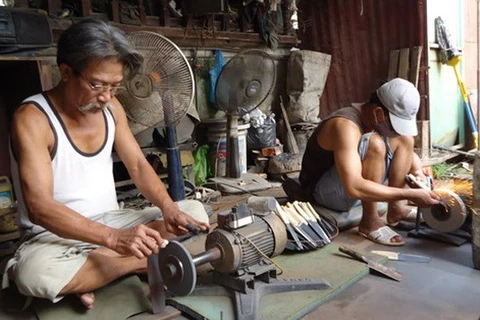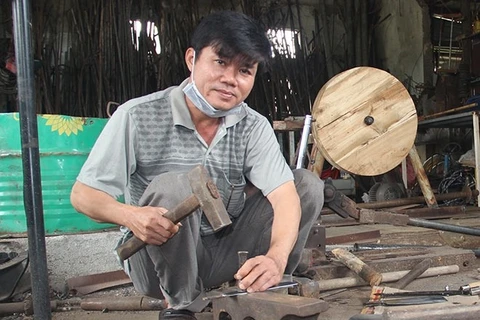Cao Bang (VNA) - The end of the year is a busy time for the blacksmiths of Phuc Sen village in the northern mountainous province of Cao Bang.
Nobody knows how long the tradition has distinguished the village, but the elders believe blacksmithing has been their community’s trade for almost a thousand years.
There are forges and anvils at almost every house in the village.
Demand for their products, mostly agricultural tools and household items such as scythes, hoes, shovels, scissors and knives, usually peaks before Tet (Lunar New Year) holiday. During this time, the village’s women also roll up their sleeves and join their husbands and sons at the fire.
The majority of the locals are of Tay and Nung ethnicity, two of the country’s 54 ethnic groups with a population of nearly 2.7 million.
Blacksmithing has been passed down from generation to generation among local households. Seasoned blacksmiths, in the absence of technologically advanced tools, draw from their decades of experience and strictly follow their ancient techniques to produce some of the finest products that can be found on the market.
“Customers come from far away to buy our products,” said Nong Van Luyen, a master blacksmith with more than 60 years of experience under his belt. “Our products may look ordinary but the more they are used, the sharper they become.”
Many villagers believe the trade is a gift from their ancestors. Not only the main source of income for the village, blacksmithing is a way to honour and preserve their cultural identity and heritage.-VNA
VNA























